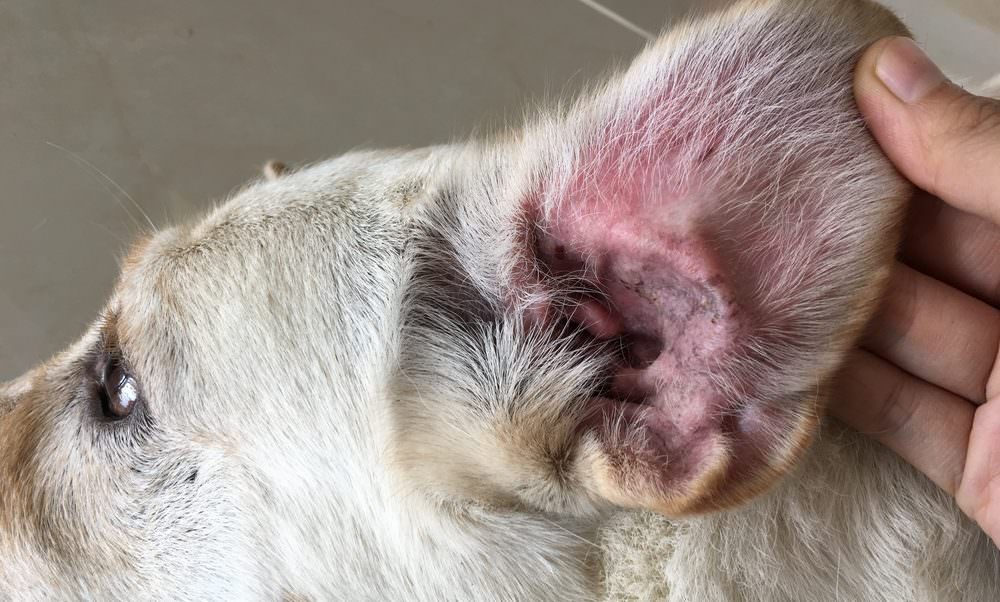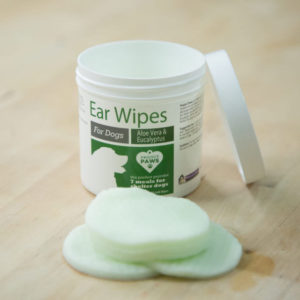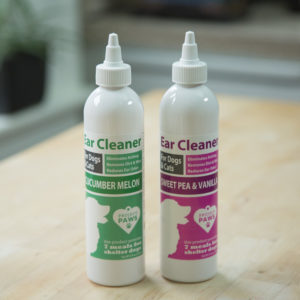
According to Nationwide Pet Insurance, ear infections were the top reason people visited a veterinarian in 2016. This painful condition could be alleviated if dog owners were more consistent about caring for their dog’s ears, such as frequent inspections, and weekly cleanings.
Which Dog Breeds Get The Most Ear Infections?
If your dog has floppy ears, in other words, the ear itself folds down over the ear canal, they are at a higher risk than other dogs for infections. The following breeds (and their mixes) are particularly prone to ear troubles:
- Doberman
- Labrador
- Golden Retriever
- Portugeuse Water Dog
- Poodle
- Schnauzer
- Cavalier King Charles Spaniel
- Basset Hound
- Bloodhound
- Afghan Hound
- Coonhound
- Springer Spaniel
- Cocker Spaniel
- Dachshund
- Shih Tzu
- Bullmastiff
- Beagle
- Newfoundland
- Saint Bernard
- Great Dane
- Weimaraners
- Mixes with any of the breeds above
How Regularly Should I Be Cleaning My Dog’s Ears?
But how often is best when it comes to cleaning your dog’s ears at home? Under-cleaning can allow infection causing yeast and bacteria to build up, while over-cleaning can strip away healthy wax and lead to irritation.
A healthy amount of wax in your dog’s ears actually helps lubricate and protect the delicate skin of the canals from infection. You want that healthy layer to remain, so cleanings should really only be performed when the ears are “dirty.”
The length of time it takes for a dog’s ears to get dirty depends on breed, coat, activity level, wax production, and even humidity. In other words, it varies for every dog. The veterinarians at Banfield recommend once monthly cleanings as a basic rule of thumb for dogs with “normal” ears, however those who swim, roll in the dirt, or have a predisposition to infections (like the breeds listed above) may need weekly or daily cleanings.

Check the ears each time you bathe your pup or after a vigorous play session like a trip to the dog park. A simple wipe of the outer ear and pinna (ear flap) is usually enough for healthy ears that have gotten a bit dirty. Apply a small amount of an appropriate, vet-approved cleanser to a cotton ball and simply swab the easy-to-reach outer folds of the ear. (we sell a veterinarian formulated ear cleanser that also gives back to shelter animals)
To determine if it is time for a good ear flushing, lift the pinna and look inside. Do you notice dirt, debris or excess brown buildup in the outer ear? If so, it may be time to break out the cleanser and do a more thorough job by cleaning out the L-shaped horizontal ear canal.
When You Should NOT Clean Your Dog’s Ears
However, before you start scrubbing away, make sure that your pooch is not suffering from an ear infection. If you notice any of the following symptoms along with debris or discharge, do not attempt to clean the ears; consult your vet right away:
- Odor from the ears
- Puritic discharge (pus) or blood
- Excess scratching, pawing or rubbing at the ears
- Violent head shaking or “ear snapping”
- Redness and/or swelling of the pinna or ear canal
- Sensitivity or pain when ears are touched
It is important to make sure that your dog always has positive experiences when it comes to home care so that he or she will trust you with these treatments in the future. When in doubt, it’s best to check in with your vet.
If you’d like to learn more about our Project Paws line of canine ear cleaning products, click here. Each purchase provides 7 healthy meals for animal shelters!
These statements have not been evaluated by the Food and Drug Administration. This product is not intended to diagnose, treat, cure, or prevent any disease. The information on this website is not intended to replace a one-on-one relationship with a qualified health care professional.

